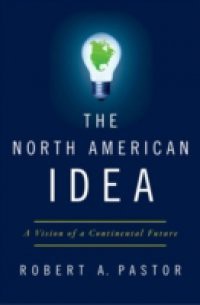In its first seven years, the North American Free Trade Agreement (NAFTA) tripled trade and quintupled foreign investment among the U.S., Mexico, and Canada, increasing its share of the world economy. In 2001, however, North America peaked. Since then, trade has slowed among the three, manufacturing has shrunk, and illegal migration and drug-related violence have soared. At the same time, Europe caught up, and China leaped ahead. In The North American Idea, eminent scholar and policymaker Robert A. Pastor explains that NAFTAs mandate was too limited to address the new North American agenda. Instead of offering bold initiatives like a customs union to expand trade, leaders of the three nations thought small. Interest groups stalemated the small ideas while inhibiting the bolder proposals, and the governments accomplished almost nothing. To overcome this resistance and reinvigorate the continent, the leaders need to start with an idea based on a principle of interdependence. Pastor shows how this idea--once woven into the national consciousness of the three countries--could mobilize public support for continental solutions to problems like infrastructure and immigration that have confounded each nation working on its own. Providing essential historical context and challenging readers to view the continent in a new way, The North American Idea combines an expansive vision with a detailed blueprint for a more integrated, dynamic, and equitable North America.




 9 (1)
9 (1) 













